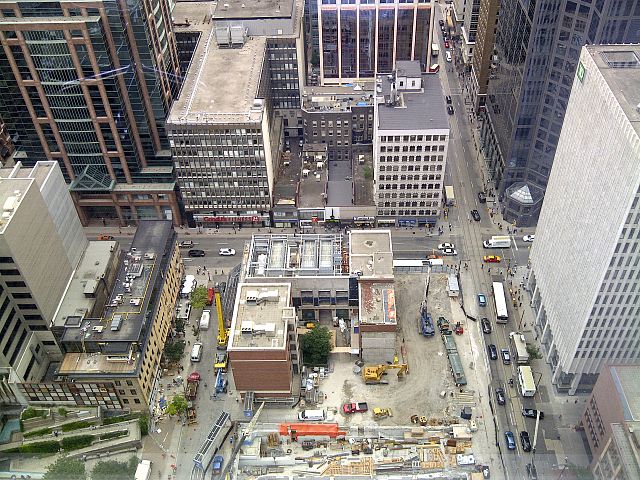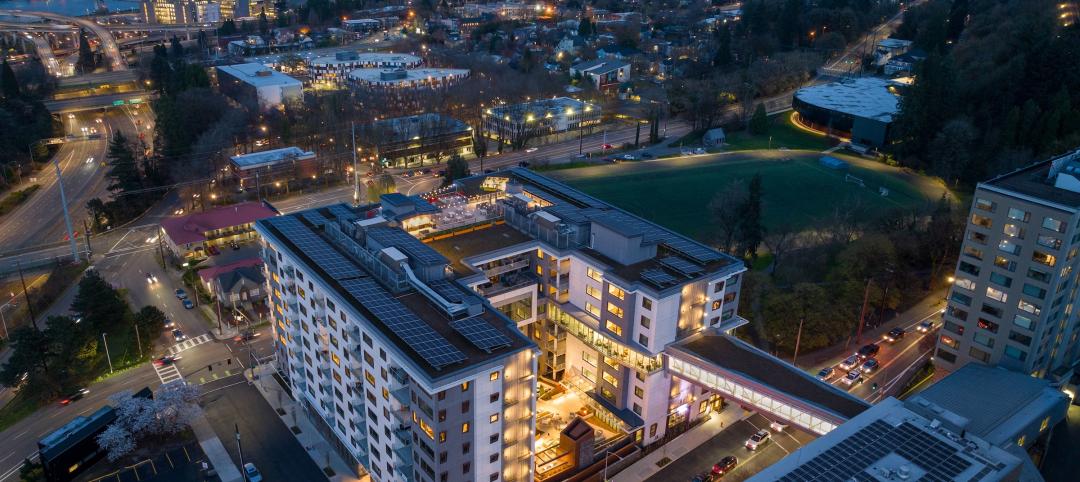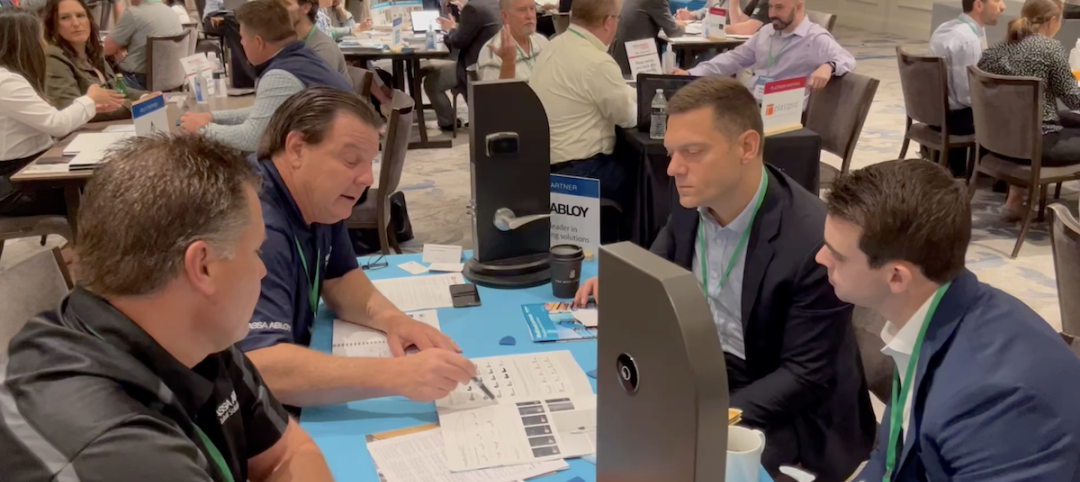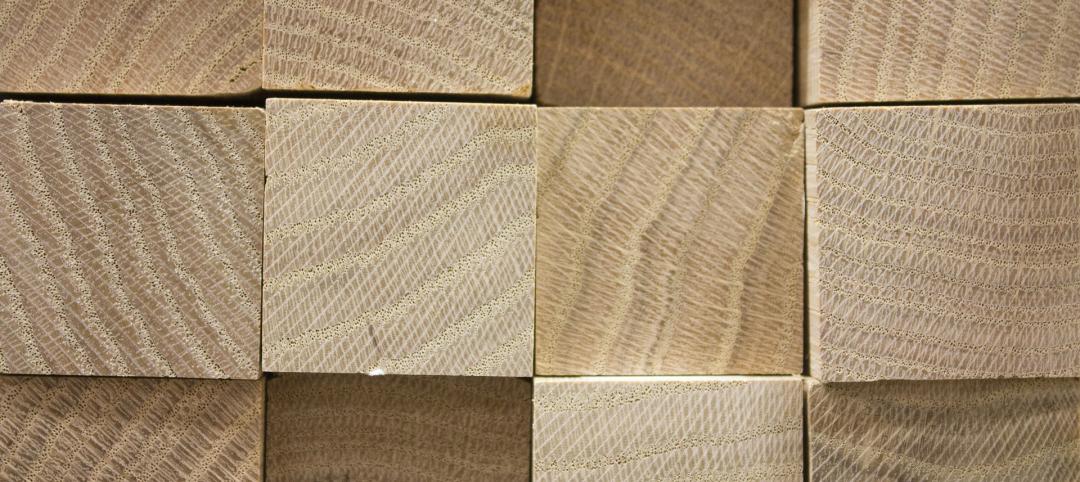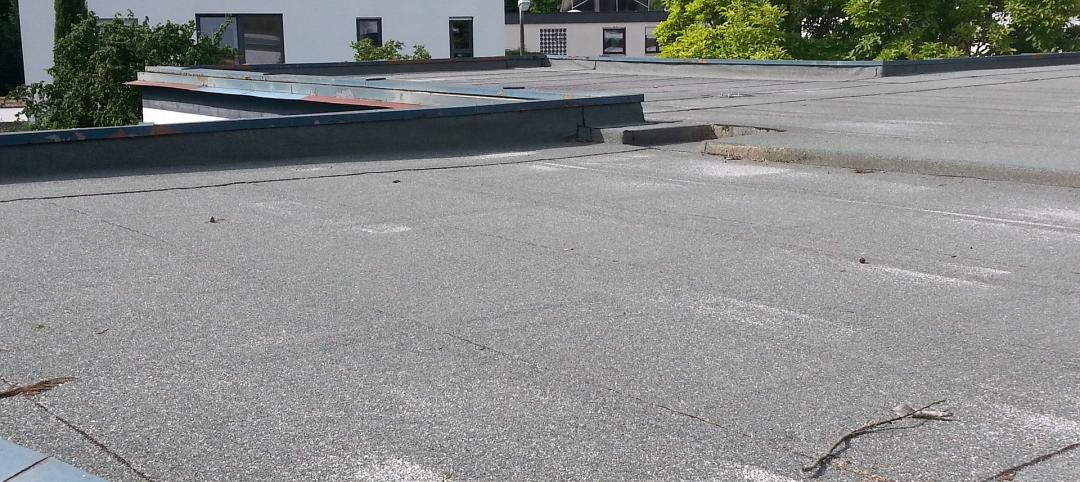The American Institute of Architects (AIA) today announced its “punch list” for Congress that, if completed, will ignite the construction economy by spurring much needed improvements in energy efficiency, infrastructure and resiliency and create jobs for small business
“America needs to create more jobs, to strengthen communities, and find help for millions of young people to succeed in the new economy,” said Robert Ivy, CEO of the American Institute of Architects, "so we've created a punch list—a term that enumerates unfinished items in a construction contract."
“The AIA’s Congressional punch list will help Congress satisfy its implicit contract with the American people to spur growth and create jobs,” Ivy said. “Our legislative agenda reflects the interests of our members, which not so coincidentally reflects the priorities of the American people.”
“America needs to create more jobs, to strengthen communities, and find help for millions of young people to succeed in the new economy,” said Robert Ivy, CEO of the American Institute of Architects. A punch list is a list of actions that need to be taken to satisfy the terms of a contract.
“The AIA’s Congressional punch list will help Congress satisfy its implicit contract with the American people to spur growth and create jobs,” Ivy said. “Our legislative agenda reflects the interests of our members, which not so coincidentally reflects the priorities of the American people.”
The AIA’s Punch List for Congress:
1. Re-enact Expired Energy Efficiency Tax Incentives
Congress left town in December without extending several important tax incentives that expired on New Year’s Day. Of most significance to the design and construction industry is the expiration of a tax break enacted in 2005 for energy efficient commercial buildings. The 179D deduction allowed building owners to claim a tax deduction of $1.80 per sq. ft. of building area to install systems that reduce the total energy and power costs by 50 percent or more when compared with a reference building. As Congress continues to debate long-term tax reform, it can boost the economy and create jobs today by reinstating this deduction.
2. Help Businesses by Reforming Government Procurement Rules
More than 97 percent of architecture firms employ 50 or fewer people; every project they design leads to job opportunities for millions of construction workers. But too many laws and regulations block innovative solutions that maximize the government’s return on its investment. Congress must reform procurement rules so that architects and designers can deliver projects that are safe, productive and sustainable. In 2014, the AIA is aggressively pushing for passage of The Design-Build Efficiency and Jobs Act of 2013 (H.R. 2750), introduced by Rep. Sam Graves (R-MO) in July, which would reform of the design-build contracting process so that more design and architectural firms can bid on federal contracts without fear of losing money in the process.
3. Invest in the Next Generation of Design Leaders
Millions of young people aspire to help their communities build a better future – but a lack of opportunity and the crushing cost of education hold them back. As a result, the design and construction industry faces a severe shortage of talent, at exactly the moment we need to start rebuilding for the future. The AIA urges Congress to pass the proposed National Design Services Act (NDSA), which will give architecture students the relief from crushing student loan debt as that granted young lawyers, doctors and others – in return for pro bono community service.
4. Invest in Infrastructure
Just as the Capitol dome, the symbol of American democracy is undergoing a multi-year renovation, so too must our nation’s infrastructure. Congress should pass a multi-year transportation reauthorization, which would allow for long-term planning that not only repairs roads and bridges but helps communities prosper; and enact a National Infrastructure Bank to finance the design, construction and repair of buildings and other vital infrastructure. Such moves would help free up capital for private sector building projects, and new ways to invest in public sector buildings, providing jobs in the short term and a more competitive economy in the long run.
5. Pass a Common-Sense Energy Efficiency Bill
Last session, the Senate Energy and Natural Resources Committee approved a bipartisan bill, the Energy Savings and Industrial Competitiveness Act of 2013 that would encourage families, businesses and the government to save energy. The Senate should take up the legislation, sponsored by Ohio Republican Rob Portman and New Hampshire Democrat Jeanne Shaheen, in 2014, and oppose efforts by the fossil fuel industry to repeal existing policies that save energy.
6. Help Communities Weather Natural Disasters
Each year, natural disasters kill tens of thousands of people worldwide and inflict billions of dollars in damage. Many parts of the United States are still recovering from tornadoes and hurricanes like Superstorm Sandy. Congress can help communities fortify themselves from such disasters by passing the Safe Building Code Incentive Act, introduced by New Jersey Democratic Senator Robert Menendez and Florida Republican Congressmen Mario Diaz-Balart, which encourages states to voluntarily adopt and enforce nationally recognized model building codes.
About The American Institute of Architects
Founded in 1857, members of the American Institute of Architects consistently work to create more valuable, healthy, secure, and sustainable buildings, neighborhoods, and communities. Through nearly 300 state and local chapters, the AIA advocates for public policies that promote economic vitality and public well being. Members adhere to a code of ethics and conduct to ensure the highest professional standards. The AIA provides members with tools and resources to assist them in their careers and business as well as engaging civic and government leaders, and the public to find solutions to pressing issues facing our communities, institutions, nation and world. Visit www.aia.org.
Related Stories
Senior Living Design | Apr 24, 2024
Nation's largest Passive House senior living facility completed in Portland, Ore.
Construction of Parkview, a high-rise expansion of a Continuing Care Retirement Community (CCRC) in Portland, Ore., completed recently. The senior living facility is touted as the largest Passive House structure on the West Coast, and the largest Passive House senior living building in the country.
Hotel Facilities | Apr 24, 2024
The U.S. hotel construction market sees record highs in the first quarter of 2024
As seen in the Q1 2024 U.S. Hotel Construction Pipeline Trend Report from Lodging Econometrics (LE), at the end of the first quarter, there are 6,065 projects with 702,990 rooms in the pipeline. This new all-time high represents a 9% year-over-year (YOY) increase in projects and a 7% YOY increase in rooms compared to last year.
Architects | Apr 24, 2024
Shepley Bulfinch appoints new Board of Director: Evelyn Lee, FAIA
Shepley Bulfinch, a national architecture firm announced the appointment of new Board of Director member Evelyn Lee, FAIA as an outside director. With this new appointment, Lucia Quinn has stepped down from the firm’s Board, after serving many years as an outside board advisor and then as an outside director.
ProConnect Events | Apr 23, 2024
5 more ProConnect events scheduled for 2024, including all-new 'AEC Giants'
SGC Horizon present 7 ProConnect events in 2024.
75 Top Building Products | Apr 22, 2024
Enter today! BD+C's 75 Top Building Products for 2024
BD+C editors are now accepting submissions for the annual 75 Top Building Products awards. The winners will be featured in the November/December 2024 issue of Building Design+Construction.
Laboratories | Apr 22, 2024
Why lab designers should aim to ‘speak the language’ of scientists
Learning more about the scientific work being done in the lab gives designers of those spaces an edge, according to Adrian Walters, AIA, LEED AP BD+C, Principal and Director of SMMA's Science & Technology team.
Resiliency | Apr 22, 2024
Controversy erupts in Florida over how homes are being rebuilt after Hurricane Ian
The Federal Emergency Management Agency recently sent a letter to officials in Lee County, Florida alleging that hundreds of homes were rebuilt in violation of the agency’s rules following Hurricane Ian. The letter provoked a sharp backlash as homeowners struggle to rebuild following the devastating 2022 storm that destroyed a large swath of the county.
Mass Timber | Apr 22, 2024
British Columbia changing building code to allow mass timber structures of up to 18 stories
The Canadian Province of British Columbia is updating its building code to expand the use of mass timber in building construction. The code will allow for encapsulated mass-timber construction (EMTC) buildings as tall as 18 stories for residential and office buildings, an increase from the previous 12-story limit.
Standards | Apr 22, 2024
Design guide offers details on rain loads and ponding on roofs
The American Institute of Steel Construction and the Steel Joist Institute recently released a comprehensive roof design guide addressing rain loads and ponding. Design Guide 40, Rain Loads and Ponding provides guidance for designing roof systems to avoid or resist water accumulation and any resulting instability.
Building Materials | Apr 22, 2024
Tacoma, Wash., investigating policy to reuse and recycle building materials
Tacoma, Wash., recently initiated a study to find ways to increase building material reuse through deconstruction and salvage. The city council unanimously voted to direct the city manager to investigate deconstruction options and estimate costs.


